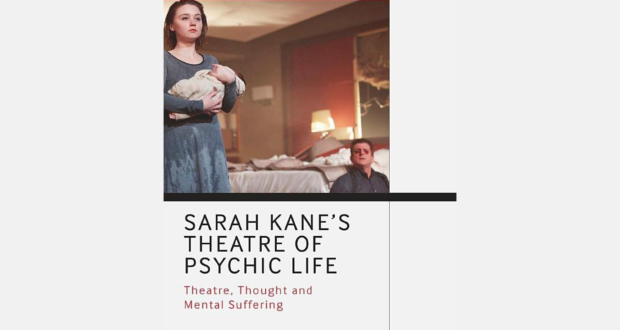Leah Sidi has written a fascinating dramaturgical analysis of Sarah Kane’s work that tackles her mental anguish head-on. Summary
Rating
Excellent
UK theatre would unquestionably be a better place if playwright Sarah Kane hadn’t succumbed to despair when she was just 28 years old. It is no criticism, therefore, to say I wish Sarah Kane’s Theatre of Psychic Life was a different book. Its author, Leah Sidi, goes out of her way, however, to present a pragmatic argument to readers. Like Kane, she is a truth-teller which, she tells us, has led to a book without hope. There’s no transformative narrative to share. She’s not in the business of finding positive and productive outcomes from Kane’s anguish to make us feel better about it. This makes Sarah Kane’s Theatre of Psychic Life a difficult and, in many ways an achingly sad, read. Fortunately, it is an intriguing and richly rewarding one too.
Despite her short life, Kane left an indelible mark on the theatrical landscape of the 1990s with five provocatively intense plays. Blasted, Phaedre’s Love, Cleansed, Craved and 4:48 Psychosis pushed the boundaries of conventional performance with a uniquely extreme, visceral style. Even if you hadn’t seen the plays, you may remember headlines about disgusted audiences from Tunbridge Wells clutching their pearls or fainting in the aisles.
Sidi proposes that as well as being a highly influential theatre-maker, Kane was, by definition, an expert in severe mental illness. The two strands, life and work, are inseparably intertwined. Importantly, this isn’t an analysis of a career forged despite suffering. Kane’s writing sits explicitly within and alongside her struggles. This view was shared by Kane herself. Sidi quotes her interviews throughout. Her writing, Kane said, was an escape from the hell in which she lived. The problem was it never worked.
According to Sidi, Kane uniquely invites audiences to experience her failures ‘from within.’ But do you have to be ill to successfully write about illness? This is the nagging, gnawing question throughout the book. Do you have to be in the maelstrom to share the maelstrom, as Kane did so memorably? Sidi doesn’t answer directly, but the idea runs through all her analyses of Kane’s work. Her questioning overall forms a deeply satisfying exploration of theatre-making, full of scholarly detail with a reassuringly long list of footnotes. Production notes, critical responses and contributions from cast and crew provide plenty of insight. The Government of the day, with its questionable commitment to Care in the Community, is studied too. It gives us insights into how Kane’s mental health was treated and how her work was perceived.
The bulk of the book forms a detailed dramaturgical walk through all of Kane’s stage writing. Viewing sexual violence, trauma and psychosis through the lens of a female artist’s psychic life should not feel radical, yet here it does. There’s a lot to learn for dramatists of all creeds and colours in Kane’s work. Your reviewer found it surprisingly inspirational too. I reached for my copy of Methuen’s Complete Sarah Kane collection to read in parallel with Sidi’s conclusions – cross-checking my understanding, reflecting on my theatrical life, learning, finding wisdom and growing. Despite the author’s protestations otherwise, there might be some hope in her book after all.
Written by: Leah Sidi
Published by: Bloomsbury Publishing
Sarah Kane’s Theatre of Psychic Life is available from Bloomsbury here.
 Everything Theatre Reviews, interviews and news for theatre lovers, London and beyond
Everything Theatre Reviews, interviews and news for theatre lovers, London and beyond



